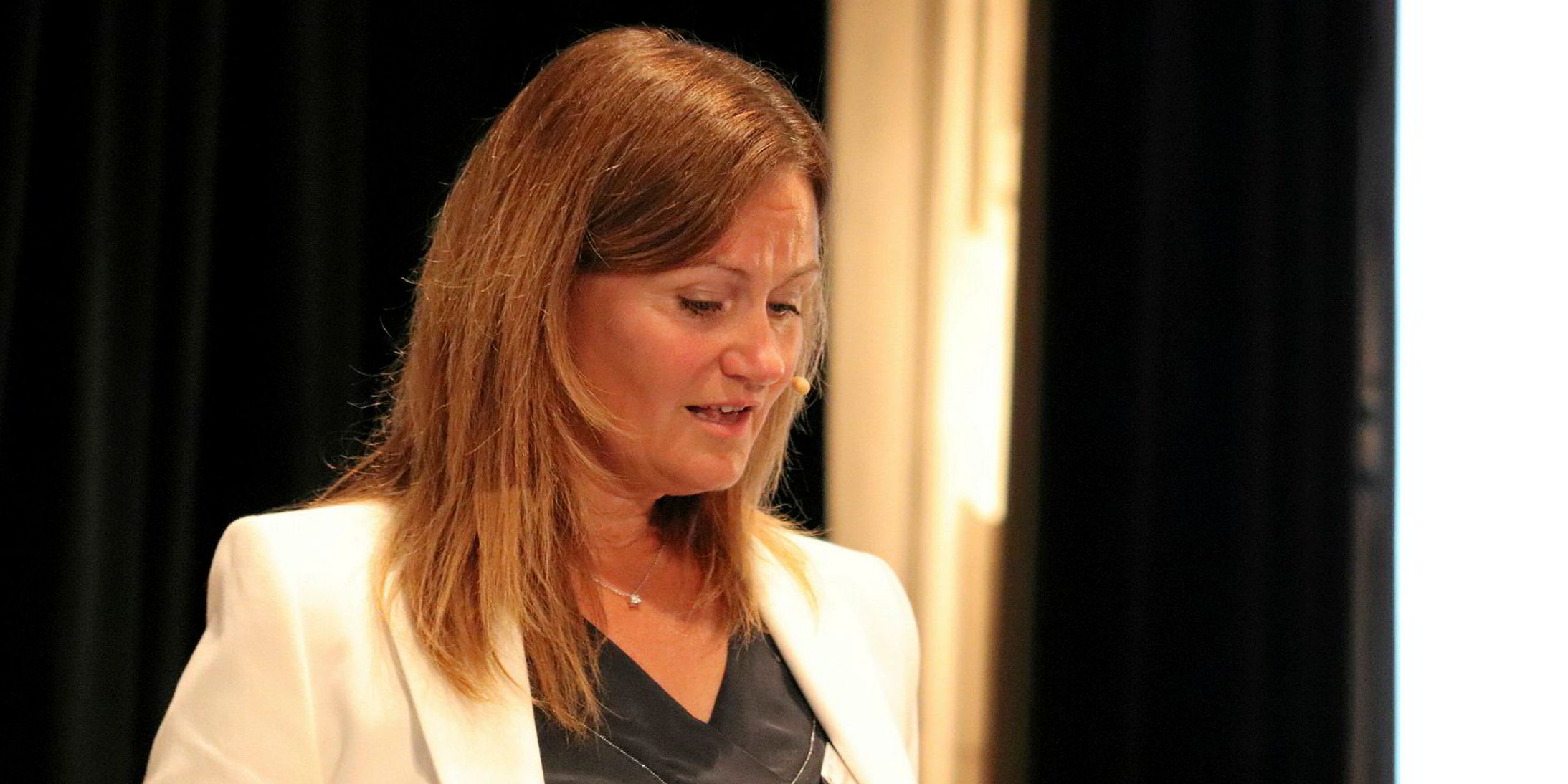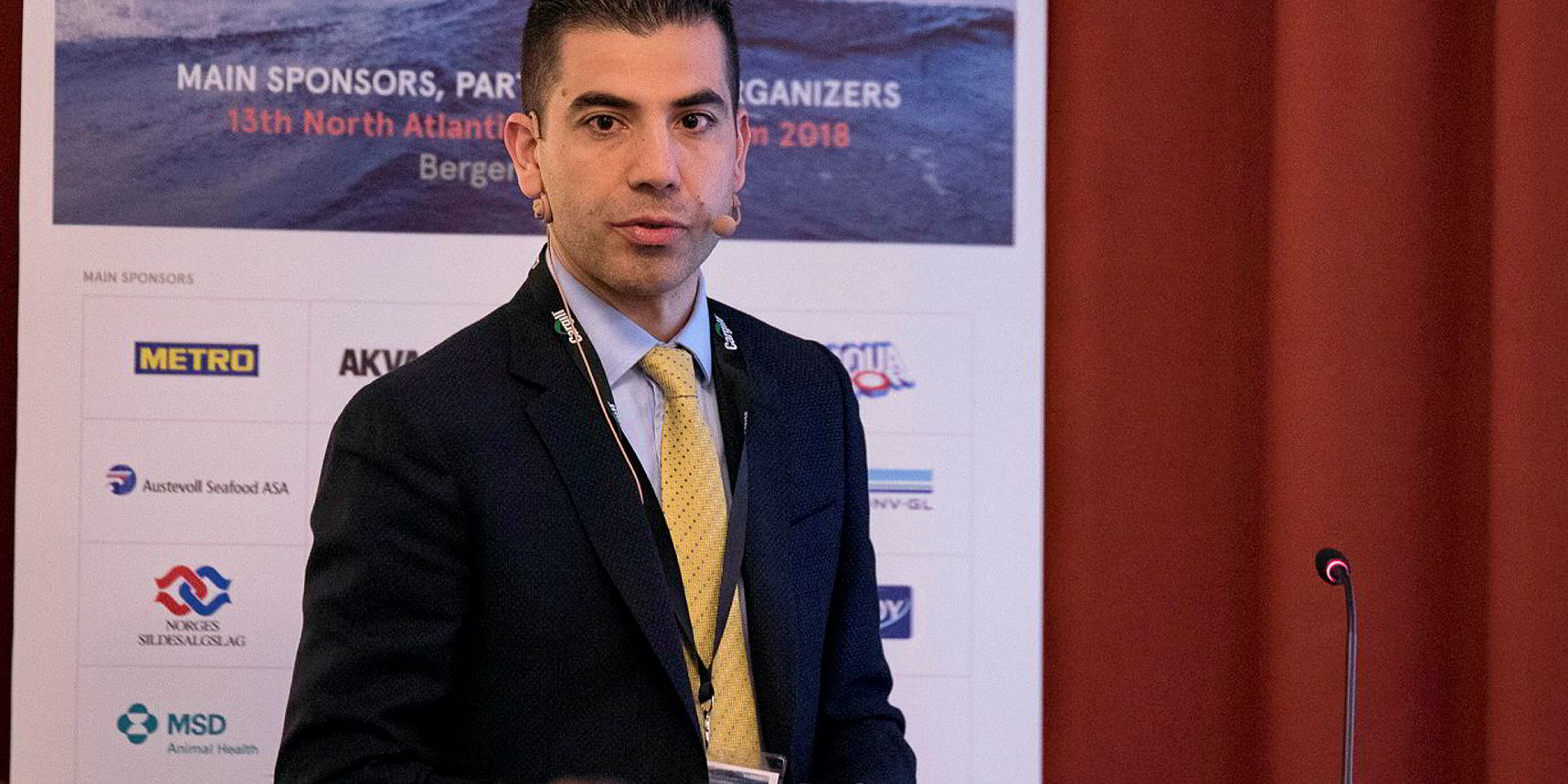Danish feed giant BioMar is bucking the trend with its second quarter financial results, seemingly escaping the global challenges of COVID-19 so far unscathed.
BioMar reported its best second-quarter performance to date despite temporary closures and other negative effects of the coronavirus situation, with both revenue and earnings improving.
The performance was mainly based on increased volume sales in the salmon division, supported by a strong product mix and supplementary services, it said.
During the period, the company saw its sales volumes increase 9 percent, while revenue increased 7 percent.
In the second quarter, BioMar posted earnings before interest, taxes, depreciation and amortization (EBITDA) of DKK 222 million (€29.8 million/$35.2 million), up from DKK 191 million (€25.6 million/$30.3 million) in the same period a year ago.
Revenues reached DKK 2.7 billion (€362.6 million/$427.9 million), compared with DKK 2.5 billion (€335.7 million/$396.2 million) in the second quarter of 2019.
The growth was mainly delivered by robust performance in the salmon markets across geographies, supported by the new salmon business in Australia.
While the salmon feed business units performed well during the second quarter compared with a year ago, the shrimp feed business has been “slightly challenged” due to the interruption of Ecuadorian shrimp exports to China, the company said.
Mediterranean markets were challenged by the HORECA (Hotels, Restaurants and Catering) sector closing almost completely down in most European markets and travel restrictions affecting the tourist season, in addition to the storm Gloria in Spain destroying significant farming capacity.
“This spring and early summer have been a very challenging and volatile period for all our business units, and we have constantly been on our toes,” said Carlos Diaz, CEO of BioMar.
“Fortunately, we have built an operation model where local agility is a cornerstone.”
The increase in volumes sold was driven by a significant improvement in the salmon division.
Ecuador shrimp, HORECA closure take their toll
The group's Latin American division reported a slight revenue decline year-on-year due the Ecuador and China shrimp situation, which reduced demand and changed the product mix from high-yielding to more ordinary feed products.
Exports to China have begun to normalize but may still pose a risk, BioMar warned.
The Europe, Middle East and Africa (EMEA) division also reported a relatively large year-on-year drop in revenue.
The setback was mainly attributable to the coronavirus, which led to a sharp drop in demand from the HORECA segment during the quarter, and to windstorm damage in Spain, which reduced the country’s fish-farming capacity.
Turkey, China ops feel the pinch
BioMar’s 50 percent-owned feed businesses in Turkey and China, which are not consolidated, reported combined second quarter revenue of DKK 161 million (€21.6 million/$25.5 million) and EBITDA of DKK 13 million (€1.7 million/$2.1 million), holding relatively steady against last year's results.
Turkey accounted for most of the revenue decline, as the country experienced sales challenges similar to those seen in the rest of the EMEA division.
China operations were also affected by the coronavirus in the second quarter. While the new factory in Wuxi started up operations, reported revenue was level with the second quarter last year, while EBITDA was slightly up.
Salmones Austral drags on results
The non-consolidated businesses, which also include Chilean salmon farming company Salmones Austral and three minor businesses, Letsea, ATC Patagonia and LCL Shipping, accounted for a DKK 6 million (€805,716/$950,952) share of post-tax loss, compared with a DKK 7 million (€940,002/$1.1 million) share of profit in the second quarter last year.
The decline was mainly attributable to Salmones Austral, which saw significantly lower settlement prices for farmed salmon, said BioMar.
Near-normal
Most parts of the world were affected by the coronavirus situation during the first quarter of 2020.
But despite the exceptional circumstances, BioMar managed to maintain near-normal operations in the second quarter, while also successfully starting up production at the company’s two new factories, in Australia and China,
Furthermore, early in the second quarter, BioMar concluded a declaration of intent with Vietnam’s Viet-UC, intended to pave the way for BioMar becoming a co-owner and taking operational charge of a relatively new feed factory.
The new partnership is expected to produce substantial synergies and to strengthen BioMar’s global position in the shrimp feed business.
From a general perspective, demand for farmed shrimp and fish is progressing well in most markets.
However, the current coronavirus situation has disrupted the usual sales channels for farmed shrimp and fish, leading to import and export restrictions, and resulting in highly volatile supply, demand and pricing.
To date, the coronavirus has not impacted BioMar’s operations to any significant extent -- once fish and shrimp are stocked, they need feed -- but sales of the more advanced feed products may diminish and be replaced by more ordinary products, and the volumes of new fry releases, and by extension the future biomass, may be reduced.
Consumer developments key
Developments on the consumer side will be a key driver of market developments. Fish and shrimp is very much an out-of-home consumption product with a large proportion of sales usually going to restaurants and catering as well as to airlines and cruise ships, the company noted.
In recent months, the entire HORECA segment has been severely battered by the coronavirus situation, and the loss of volume sales has only been partly offset through the retail segment.
The change in consumption pattern has, along with international uncertainty and national restrictions, led to lower settlement prices for fish and shrimp, which in turn could result in increasingly difficult financial conditions for BioMar’s customers.
The full-year guidance assumes that the markets of Europe and China continue to move towards normalization and that the current negative trend in the United States reverses in the third quarter.
It is particularly essential that the extremely important exports of shrimp from Ecuador to China and of salmon from Chile to the US can be retained, said the group.
It is quite obvious that market developments are subject to above-normal uncertainty, both in terms of how quickly the world’s core markets can return to normal as well as the extent of the risk of new massive coronavirus outbreaks, which can both trigger restrictions and affect BioMar’s sales and risk profile.
"I am proud, we are getting through the first period of the pandemic with such positive results," said Diaz.
"However, we are not on the other side yet and there will most likely be a further business impact from the challenging market conditions for our customers and as BioMar we will be there to support."
BioMar now expects to generate revenue of about DKK 11.5 billion (€1.5 billion/$1.8 billion) and EBITDA in the range of DKK 940 million (€126.2 million/$149 million) to DKK 1 billion (€134.3 million/$158.5 million) for 2020.




